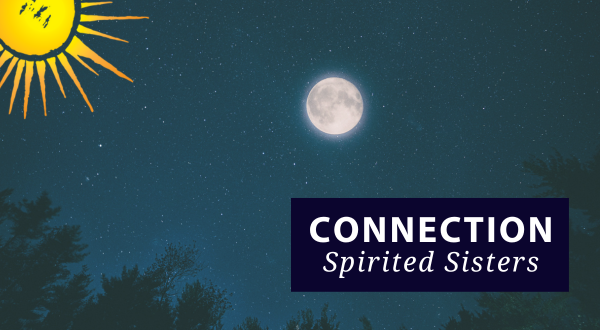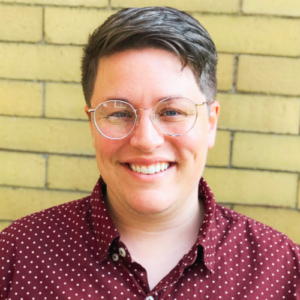
Visionary Goals
Devoting Ourselves to Transformation Brings Out Our Best
Sr. Emily TeKolste, SP
December 11, 2023
When I was a kid, I was mildly obsessed with NASA — particularly the Apollo missions to the moon. Because of this, I admired President Kennedy, who set a goal to send astronauts to the moon and inspired the American people to champion his vision. In a speech at Rice University, he said, “We choose to go to the moon in this decade and do the other things, not because they are easy but because they are hard. Because that goal will serve to organize and measure the best of our energies and skills.”
As I grew older, I started to encounter the work of Dr. Martin Luther King, Jr. and many other visionary leaders who rallied our country to come together across division. They saw the fight for racial and economic justice as inextricably intertwined. They strove to build and sustain what Fred Hampton called a Rainbow Coalition, recognizing that our fates are linked.
Today, we benefit from the many fruits of their visions. We carry cellphones in our pockets that exist because of the vast technological leaps provided by the research and brilliant intellect that went into the Mercury, Gemini, and Apollo missions and beyond. We have landmark legislation, the Voting Rights Act and Civil Rights Act, that have moved us closer to racial justice because of Black-led, multiracial, multi-faith campaigns that withstood white supremacist violence to create a better world for us all.
We have made astounding progress thanks to the work of so many visionary leaders — people just like you and me who stood up and proclaimed that we could live in a better world if we could come together toward a common goal.
Over the past decade, though, it seems like we’ve lost so much ground. Supreme Court decisions have stripped the Voting Rights Act of vital protections. Leading candidates for public office stoke racism and misogyny with no negative consequences. And many family bonds are frayed along ideological lines — with people unwilling to recognize the humanity bestowed by God in their loved ones, and all too willing to stop talking to one another.
Several years ago, I encountered the words of Civil Rights icon and public theologian Ruby Sales in her interview with Krista Tippett of On Being. She said “I really think that one of the things that we’ve got to deal with is that — how is it that we develop a theology or theologies in a 21st-century capitalist technocracy where only a few lives matter? How do we raise people up from disposability to essentiality?” She goes on to say that this goes beyond the question of race, recognizing the basic dignity and the very real pain that so many people — Black and white — are experiencing in our world today.
When it comes down to it, most of us — no matter what we look like or where we get our news — want the same things. We want to live in safety. We want to love and be loved. We want enough food to eat and some comfort in our lives. We want to contribute to our families and communities. We want meaningful work — whether paid employment, care for family, or volunteer work (care for community). And we want that work to pay us fairly so that we can support our families and contribute to our communities.
Lately, though, it seems that people cling so tightly to political parties and identifying labels that we can’t seem to find common ground on anything. A few wealthy individuals and greedy politicians seek to divide us along ideological lines by strategically stoking a history of racial bias so that they can distract us while they dismantle our democracy and manipulate the economy to serve their interests.
The results of this strategic use of division and racism are stark: a real and ongoing threat of political violence, multiple days this summer of new domestic and global record-setting high temperatures, unaffordable housing costs, and a wealth gap between the rich and the poor that’s greater today than it was in the Gilded Age that preceded the Great Depression.
These things hurt all of us!
But it doesn’t have to be this way. We are people of hope. We believe in human dignity and are capable of treating everyone around us with the dignity they deserve. By doing so, we can begin to open up a path for transformation for those close to us, and to people in our community. When we begin by transforming our own hearts and minds, we can bring others along with us and, together, transform our whole political climate.
What if — instead of naming our enemies as each other — we come together to achieve a common goal as visionary leaders did in the past? This will require the best of all of us, much like we did as a nation when we took on the space race. What if we embraced a race to end poverty, a race to house the unhoused, a race for compassion and humanity? Not because they are easy, but because they bring out the very best each of us has to offer.








